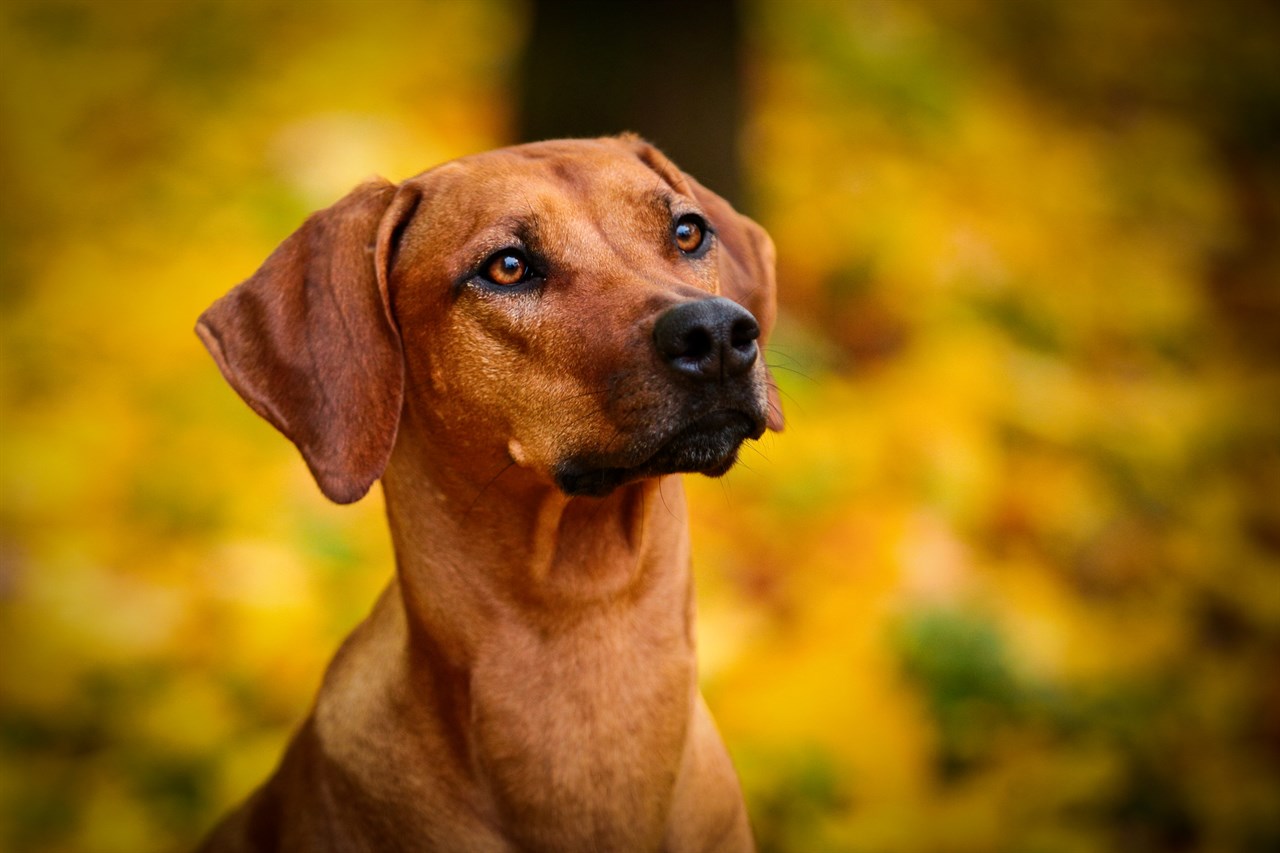Feeding Habits and Food Requirements of Rhodesian Ridgebacks

Proper nutrition is vital to the health and well-being of Rhodesian Ridgebacks, as it is for all dog breeds. Understanding their feeding habits and food requirements is essential for providing them with a balanced diet.
Feeding Habits
Rhodesian Ridgebacks tend to have healthy appetites, but their feeding habits can vary among individuals. Here are some general feeding habits to keep in mind.
Regular Meals
Feeding your Ridgeback on a regular schedule helps establish a routine and ensures they receive the appropriate amount of food each day.
Portion Control
It's important to measure your dog's food portions to prevent overfeeding, which can lead to obesity. Follow the feeding guidelines provided on the dog food packaging or consult with your veterinarian to determine the right portion size for your Ridgeback's age, weight, and activity level.
Water Access
Always provide access to fresh, clean water for your Ridgeback, especially during and after meals.
Avoid Free Feeding
Free-feeding, or leaving food out all day for your dog to graze on, is not recommended for Ridgebacks. Controlled meal times help with portion control and can make it easier to monitor their food intake.
High-Quality Dog Food
Choose a high-quality commercial dog food that is appropriate for your Ridgeback's age, size, and activity level. Consult with your veterinarian for specific dietary recommendations.
Food Requirements
Rhodesian Ridgebacks have specific nutritional requirements to support their active and muscular bodies. Here are some key considerations:
- Protein: Protein is essential for muscle maintenance and growth. Look for dog food that contains high-quality protein sources, such as chicken, beef, or fish.
- Fat: Healthy fats provide a concentrated source of energy for Ridgebacks. They should have a balanced amount of fat in their diet to support their active lifestyle.
- Carbohydrates: While dogs don't require carbohydrates like humans do, some complex carbohydrates can provide a source of energy. Look for dog foods that include whole grains like brown rice or oats.
- Vitamins and Minerals: A well-balanced dog food should include essential vitamins and minerals to support overall health and vitality.
Avoid Harmful Ingredients
Check the dog food label for any harmful additives, fillers, or excessive amounts of artificial preservatives.
Age and Activity Level
Adjust your Ridgeback's diet according to their life stage and activity level. Puppies, adult dogs, and seniors have different nutritional needs.
Food Allergies and Sensitivities
Some dogs may have food allergies or sensitivities. If you suspect your Ridgeback has a food intolerance, consult with your veterinarian to determine an appropriate diet.
Special Considerations
Some Ridgebacks may have specific dietary needs or restrictions, such as those with allergies, sensitivities, or certain medical conditions. It's essential to work closely with your veterinarian to address any special dietary considerations and choose the right food for your individual dog.
In conclusion, providing your Rhodesian Ridgeback with a balanced and nutritious diet is crucial for their overall health and well-being. Maintaining a regular feeding schedule, portion control, and choosing high-quality dog food are key factors in ensuring that your Ridgeback receives the nutrients they need to stay active, healthy, and happy.
Rhodesian Ridgeback puppies for sale
- Find Rhodesian Ridgeback puppies for sale in ACT
- Find Rhodesian Ridgeback puppies for sale in NSW
- Find Rhodesian Ridgeback puppies for sale in NT
- Find Rhodesian Ridgeback puppies for sale in QLD
- Find Rhodesian Ridgeback puppies for sale in SA
- Find Rhodesian Ridgeback puppies for sale in TAS
- Find Rhodesian Ridgeback puppies for sale in VIC
- Find Rhodesian Ridgeback puppies for sale in WA